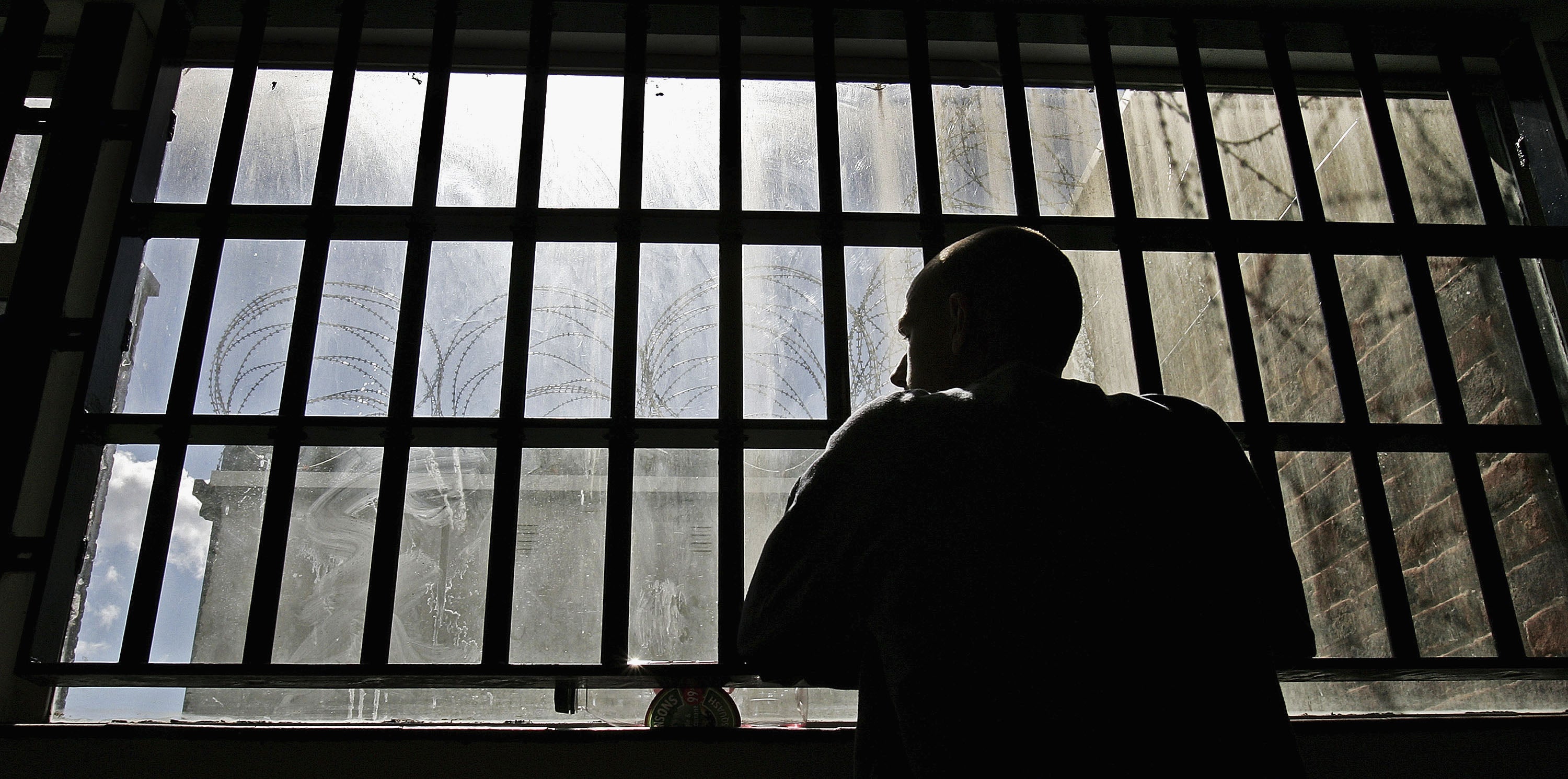Number of prisoners stuck in solitary confinement a real worry, prisons watchdog warns
Prisons at risk of ‘eternal lockdown’ at the expense of offenders’ mental health

The prisons watchdog has warned of the “long-term price” of restricting offenders’ time out of cells, as reports show many are living in conditions equal to solitary confinement.
Analysis by The Independent found unemployed prisoners in 72 per cent of English prisons inspected since Covid restrictions were lifted spent 22 or more hours in their cell a day.
Charlie Taylor, chief inspector for Her Majesty’s Inspectorate of Prisons (HMIP) told The Independent the findings were “a real worry”, adding: “I’d be amazed if there is not a long-term price to pay for prisoners’ mental health.”
In 13 of the 18 prisons analysed, offenders without jobs in prison or those on a ‘basic’ incentives scheme were unable to leave their cells for more than two hours a day. In four prisons they were not allowed out for more than an hour.
While many prisoners share a cell, substantial numbers were left entirely alone with no meaningful human interaction.
The UN’s ‘Nelson Mandela Rules’, detailing the minimum standards for the treatment of prisoners, recommend prisons never use indefinite and prolonged solitary confinement, defined as more than 22 hours spent alone in a cell.
Prisons restricted time out of cells during the pandemic, as the virus spread rapidly between inmates and staff.
Dr Sharon Shalev, a research associate at the University of Oxford, said: “Any such practice, whether or not Covid related, is solitary confinement.
“I am very concerned about the mental health of prisoners following the prolonged period of solitary confinement they’ve had to endure over the last couple of years.”
In one of the worst examples, at HMP and YOI Chelmsford, nearly half of the 712 men held there were unemployed and locked in cells for almost 23 hours a day in November.
One inmate told prison inspectors: “I alternate my time, I lie in bed, sit in my chair, lie in bed, sit in my chair. This is how I pass time, I think time to get up now, then I get stiff sitting on a chair, so I stretch out on my bed, then I get up again and sit in the chair.”
Studies have found solitary confinement, especially in the long term, has a detrimental impact on mental health with consequences ranging from increased anxiety to high risk of self-harm and suicide.
Delays to increasing time for education and fresh air have been partly attributed to staff shortages worsened by Covid.
Mark Day, head of policy and communications at the Prison Reform Trust, said: “Unless the prison service can get to grips with growing problems of staff recruitment and retention it is unlikely prisons will have the capacity to increase purposeful activity to pre-pandemic levels.
“This means prisoners locked up for the large majority of the day for the foreseeable future, with significant consequences for their mental health and wellbeing and opportunities for successful rehabilitation.”
Her Majesty’s Prison and Probation Service has committed to recruiting and retaining more staff.
Some prisons, according to Mr Taylor, lack the motivation to increase offenders’ time out of their cells.
He said: “Some are keen to get on with it, but other places we see are stuck in how things work now, and stuck in a post-Covid furrow.
“It’s not sensible to go from high levels of lockdown to unlocking everyone overnight, that can lead to all the things like violence.
“But you need to build up confidence in staff and you’ve got to have a place you want to get to, as some prisons seem to be caught in eternal lockdown.”
Education has been found to reduce re-offending rates and help prisoners to re-adjust after their release.
One man in a training prison found isolation especially difficult because he was unable to read or write. He told prison inspectors he spent most of the limited time he had outside asking staff for help filling in forms.
Unlike other prisoners, he couldn’t occupy himself with books or in-cell distraction packs. Instead, he said he smoked Spice to pass the time.
Despite the added difficulty he experienced, he is more likely than most to remain restricted to his cell, as his illiteracy means he will struggle to get a job within the prison, which would give him more time out of his cell.
A Prison Service spokesperson said: “We know that limiting time out of cell has consequences but rising infection rates over winter required further restrictions to keep prisoners and staff safe.
“Our approach has saved thousands of lives in prisons since the start of the pandemic and, while prisons remain at higher risk than the community, restrictions are now easing with almost half of all adult prisons already back to normal.”
Subscribe to Independent Premium to bookmark this article
Want to bookmark your favourite articles and stories to read or reference later? Start your Independent Premium subscription today.

Join our commenting forum
Join thought-provoking conversations, follow other Independent readers and see their replies